Cricketer Ash Gardner on the physical and mental effects of a series of concussions
Cricketer Ash Gardner has suffered five concussions in 18 months. Recovering from the physical effects as well as the hit to her confidence has been a long process.
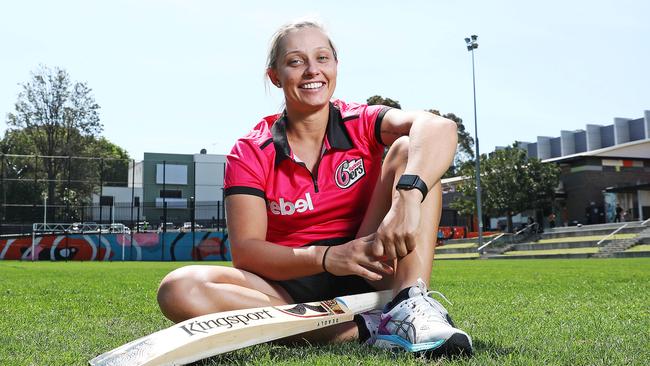
Cricket
Don't miss out on the headlines from Cricket. Followed categories will be added to My News.
Ash Gardner grew up nailing thumping tackles in rugby league — on boys her age.
She was the only girl playing the competition in the Bankstown area and no one went easy on her.
“It was nerve-wracking but I liked to show I had a bit of ticker playing rugby league,” she said. “I wanted to show that girls could do it.”
She admits she got smashed a few times, and didn’t get up very quickly, leaving her mum, Katherine, in a nervous mess on the sidelines. “But I loved playing with the boys my age, it made me hungry and competitive, because I wanted to be at the same level as what they were,” Gardner said.
She was a talented junior in not only league but many sports, including, cricket.
Watch every match of the WBBL/05 LIVE & On-Demand with KAYO SPORTS. Get your 14-day free trial & start stream instantly>
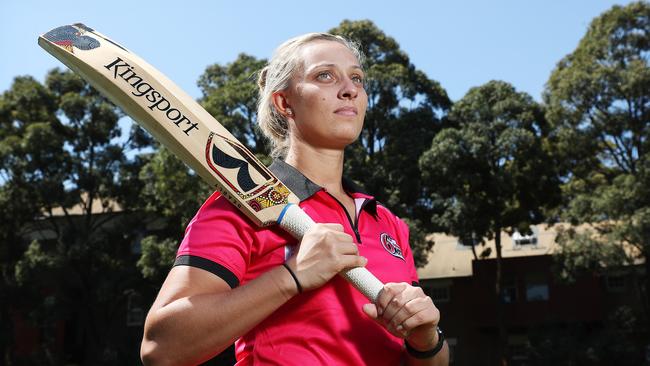
“If I got a boy out, they’d cry, because ‘they got out by the girl’,” she said, smiling. “That’s what my childhood was, just playing with the boys. I was one in them, they made me feel like I belonged rather being an outlier.” The Sydney Sixers and Australian all-rounder said those junior sporting days made her resilient and tough. And she’s certainly needed all her personal strength and fight to push through the past 18 months.
The 22-year-old has now had five concussion in that space of time. “I haven’t had a very good run,” she said. “I’ve been hit in the head five times in the last 18 months.”
After her last concussion, when a bouncer struck her in the head at a practice match, she ended up in a neuropsychologist’s office. Gardner sat in that office in September last year and the talented cricketer was told she needed to consider her future. “You need to think about whether you want to keep playing cricket,” the neuropsychologist said. Gardner’s sentiment?
“Well that’s a silly question, of course I am going to keep playing.”
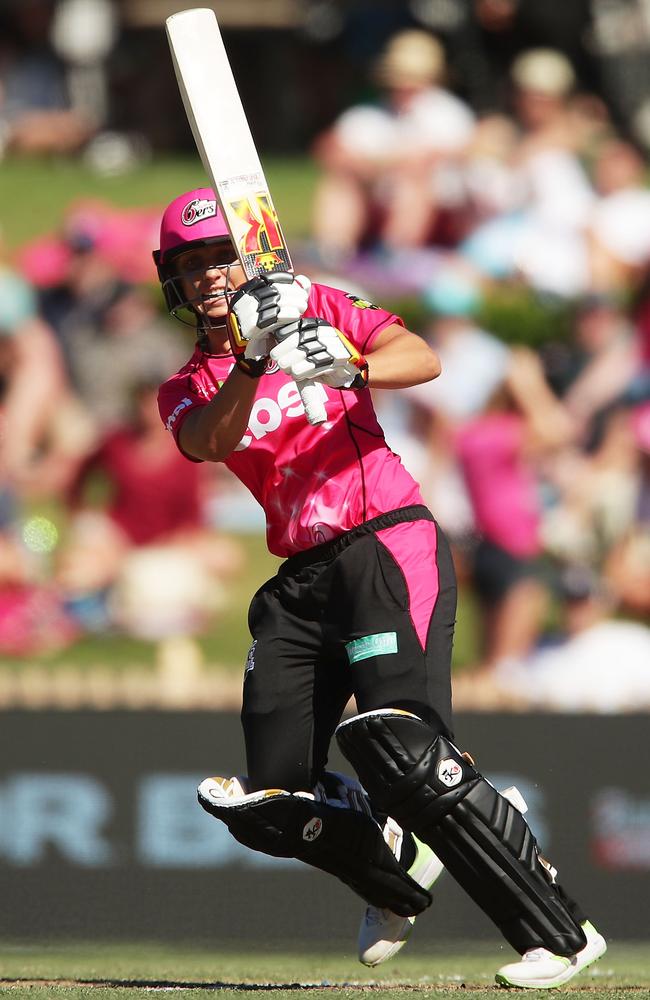
For the determined Gardner, who was about to be part of the Australian team who would take on New Zealand in a series, there was no way she was stepping back. “It didn’t bring me to tears in the office that day, it was a hard situation, I was stubborn and there was no way I wasn’t going to keep playing,” Gardner said. “The hardest thing is, if you do get injured, you can lose your spot. I didn’t want to risk that. But at the same time, I understand my health is more important than cricket. There’s fine line in doing what you love and that you are healthy while you are doing it.” “That was a tough conversation to have.”
Gardner says she doesn’t struggle with the physical ramifications of concussion — which have gotten worse with every hit. She can handle the headache that hangs around for as long as three weeks. “Panadol can’t do anything because it is obviously from a head knock and not a headache,” Gardner said. “You just don’t feel ‘right’. A little bit off.” But what’s been hard to deal with is the mental aspect — that is getting her confidence back, losing the fear of being struck in the head again. For some time during Big Bash last season she refused to have anyone bowl fast balls at her in the nets. For a good six months, she would go out to bat in the middle, “waiting for that short ball to hit.”
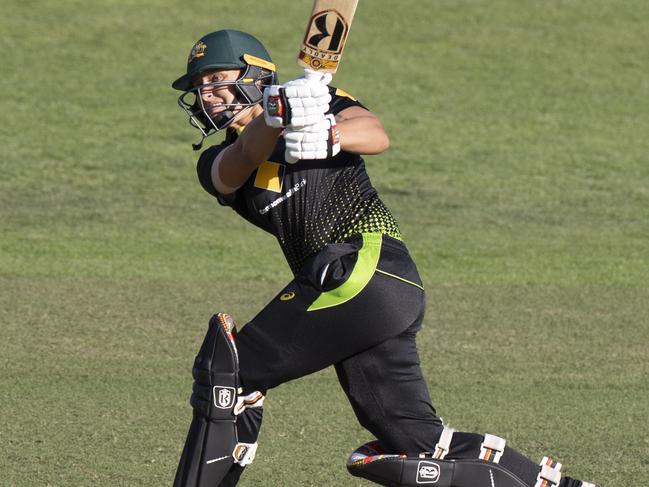
“That’s not the mentality you want to have. It’s negative thinking. It was very mentally draining,” Gardner said. It made it very difficult to prepare for a game when she was only facing “throws” in the nets.
When she saw Australian player Steve Smith knocked out by a searing bouncer in the recent men’s Ashes series at Lord’s it made her feel sick. She’s could only watch Smith KO-ed once. It reminded her of the brutal consequences this game can dish up.
Today, Gardner is better. Of course, she’s had times in her recovery when she’s asked herself; “is this worth it?” But through perseverance, hard work and solid support network at the Sixers and the Australian team she has managed to revive her confidence. By the Twenty 20 World Cup earlier this year she was “fine”.
She has done a lot of work with the Australian batting coach about getting her “instinct” back. “I’ve learnt to ‘just react to it’ rather than ‘thinking about it’,” Gardner said. “I play quite badly when I am thinking too much about everything. You don’t play your natural way.”
“Even now, if someone bowls a short ball, it’s still in the back of my head. But I have to be positive and resilient.” “I hope I don’t get hit again, the possibility is always there for anyone not just myself, I try not to think about it, it takes up too much energy. I have to play on instinct.”
GARDNER wrote herself in the history books when she represented Australia in July this year — she is only the second woman of indigenous descent to have played the game at the highest level. Faith Thomas was the first and she played a lone Test in 1958. Gardner is the second indigenous woman to play the game at the national level. “There’s a 68-year gap between us,” Gardner said. “That’s crazy. It’s an absolute honour to be the second one behind Faith to play cricket for Australia. She’s an amazing woman.”
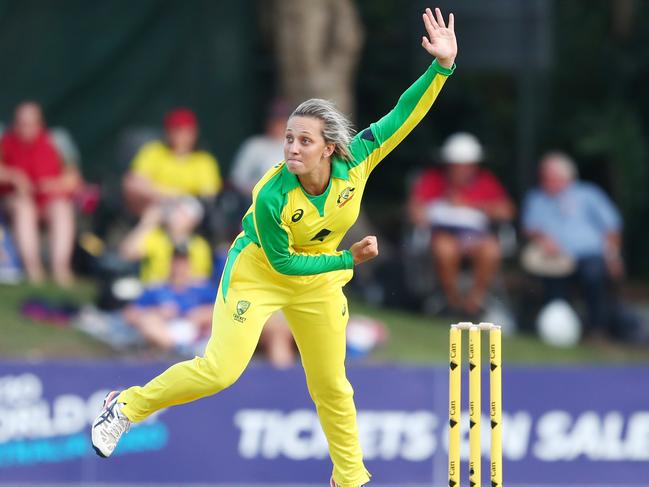
Gardner comes from the Muruwari people, regional New South Wales, and her mum has served as a great inspiration to her. Her “incredible” mother Katherine had a very challenging upbringing. Her own mum passed away five days after giving birth and she was fostered out. Her foster mother died when she was four and her foster father passed away when she was 14. She then later went to boarding school in Orange. Gardner said her mum has taught her about perseverance — as has her dad who is still playing cricket at 55.
“Mum’s is a living, breathing example of what hard work can achieve,” Gardner said.
“The hardship she went through in her childhood and growing up, to now be the person she is, she would work 24 hours a day if she could, she wants to get things done. It’s the kind of attitude I have taken from her and my dad. They’ve worked really hard to get where they are.”
“It’s inspiriting to have people like them in my life.” As for Gardner’s future?
“The main goal for me is playing as many games for Australia as I can,” Gardner said. “It’s a pinch yourself moment to play for Australia. When I was 10 — I would have been like there was no way I could do that — to be able to live out my dream is an amazing thing.”
“I would love to leave a legacy to inspire young sportspeople to work hard.”
